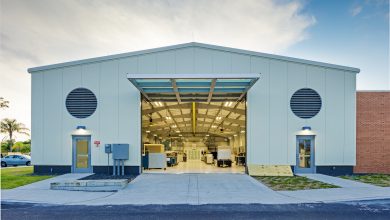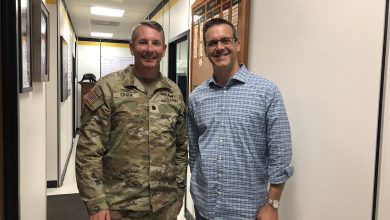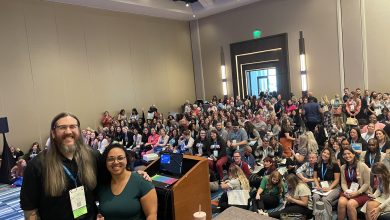Senior Research Scientist Pursues Degree No. 4 through the Virtual Education Center
Mark Elowitz, Ph.D., will earn his fourth academic degree in spring 2020, graduating from Florida Tech’s College of Engineering and Science with a master’s degree in space systems. Prior to this achievement, Mark completed a B.S. in astronomy from the University of Arizona, an M.S. in space studies with a thesis on exoplanets from the University of North Dakota, and a Ph.D. in astronomy and astrophysics from The Open University.
“I earned my four academic degrees to provide myself a well-balanced advanced education in both science and engineering, which will be applicable to a wide range of scientific and engineering research projects in support of the [Department of Defense] and NASA” Mark says.
In an interview with Mark, we learned about his academic and professional journey and the importance of a continuing education.
When did you decide that you wanted to go back to school and pursue a fourth degree?
“After completing my Ph.D. in astrophysics (2015-2019), I decided that I needed to supplement my scientific background with space engineering to make me a better candidate to support NASA. It was actually near the end phase of my Ph.D. that I applied and was accepted into the M.S. space systems program at Florida Tech. I started the program in the fall 2018 semester.”
What are currently doing professionally?
“I am currently working as a senior research scientist on U.S. government contract programs involving the use of spectroscopy in support of special research projects for the U.S. Air Force. I am also an affiliate of the SETI Institute, writing various proposals to obtain government grants. Once I am able to obtain a Ph.D.-level research grant, the SETI Institute will make me a full-time, regular employee of their institute.”
What brought you to Florida Tech?
“I was interested in space systems engineering and performed an extensive search on the internet of various universities that offered graduate-level programs covering this subject area. Since NASA’s Kennedy Space Center is located in Florida, I actually did a search of various universities in the state of Florida and found Florida Tech. I like the fact that Florida Tech has an association with NASA and is a private university. After reviewing the academic program for the M.S. in space systems, the topics of the courses piqued my interest, so I decided to earn the M.S. in space systems from Florida Tech.”
What was your most valuable takeaway from the space systems program?
“The most important takeaway from the Florida Tech M.S. space systems program is the unique interdisciplinary aspect of the graduate program. There are not too many master’s-level programs that are interdisciplinary (engineering applied across several different fields) in nature, so Florida Tech’s space systems program is a rare occurrence in today’s graduate school programs.”
What does graduation mean to you?
“This graduation will mark the conclusion of my academic pursuits. At the age of 58 years, my four university degrees will allow me to finish my senior-level career as a leader in space exploration and astrophysics projects/programs.”
What are your plans for the future?
“My future career plans involve the pursuit of academic, nonprofit institute or NASA-sponsored research positions to finish out my final career path. I would also like to teach various astronomy, astrophysics and astrobiology college-level courses as a part-time adjunct professor. I believe that anyone who earns a Ph.D. should give back to society the gift of education and intellectual knowledge so that they, in turn, can pass on that knowledge to other future members of our society.”
What advice would you share with future students?
“My advice to future students is to secure a strong foundation in mathematics (ranging from simple algebra, geometry, trigonometry to advanced calculus and differential equations) if you wish to pursue any scientific and/or engineering academic programs. Carefully evaluate your future goals and intellectual interests before selecting your academic field (or fields) of study. In today’s rapidly changing society in the scientific/engineering disciplines, make sure you have a solid foundation in STEM (science, technology, engineering and mathematics) if you plan to pursue a lifelong endeavor in science, engineering or mathematical careers. Don’t necessarily focus only in one narrow field of study, but try to gain an intermediate-level understanding across multiple scientific/engineering disciplines, as this will provide you with the necessary background to function within today’s research industry and academic careers.”
Interested in the space systems program? You can learn more about it here.
You can also browse all Florida Tech programs on our programs page.





